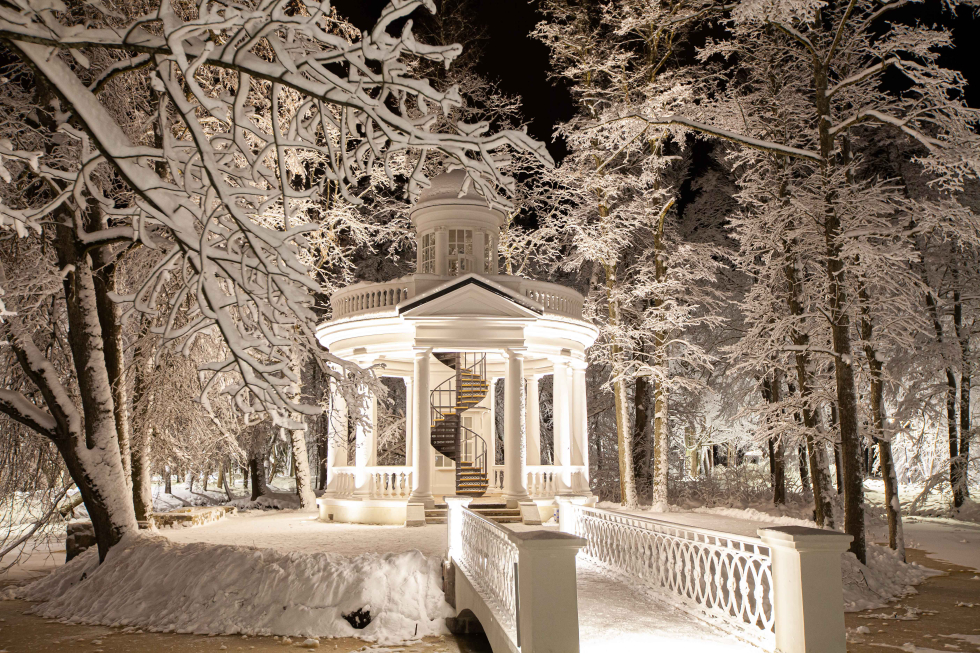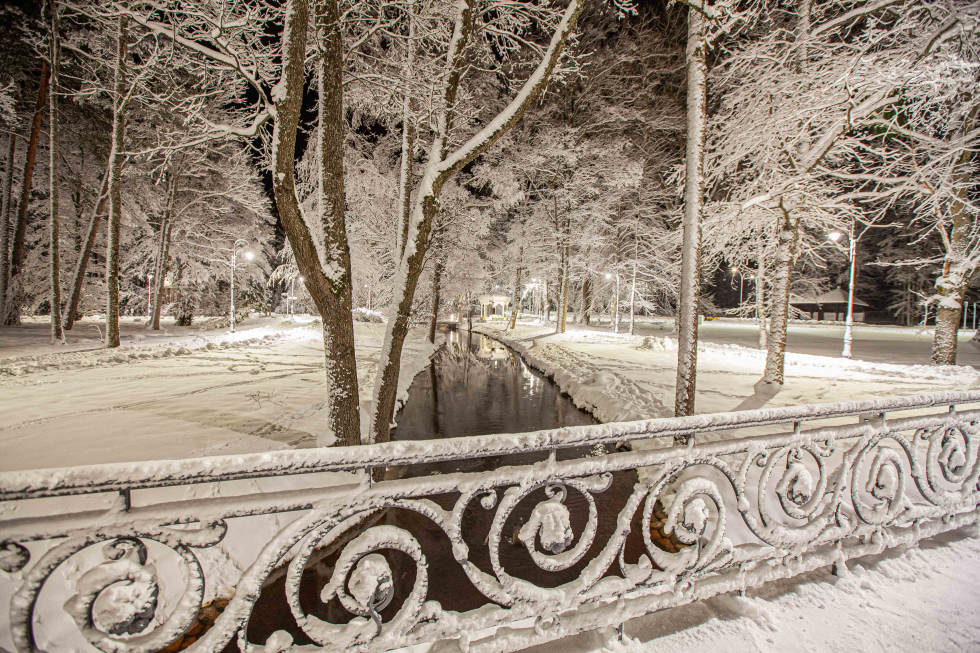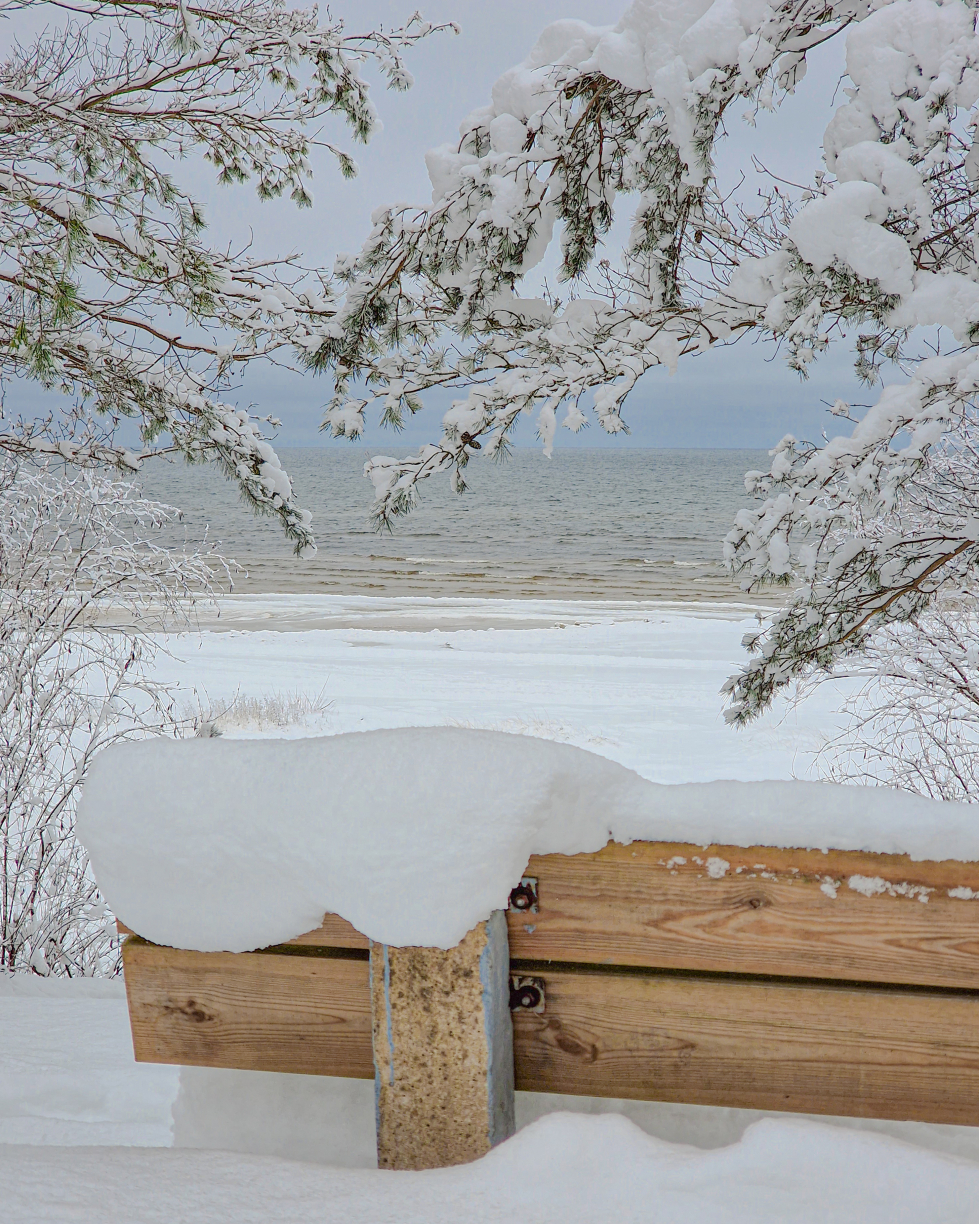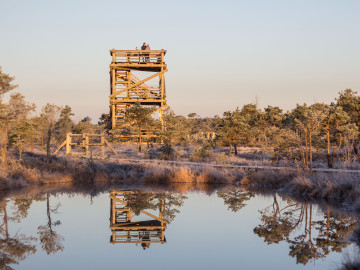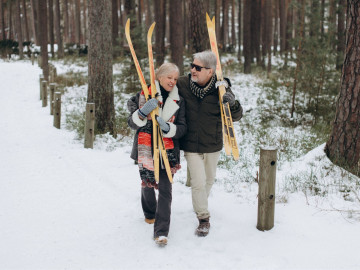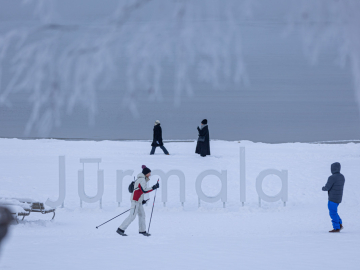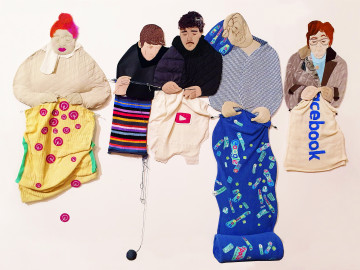Jurmala in Winter: An Experience of Peace, Serenity, and Warmth
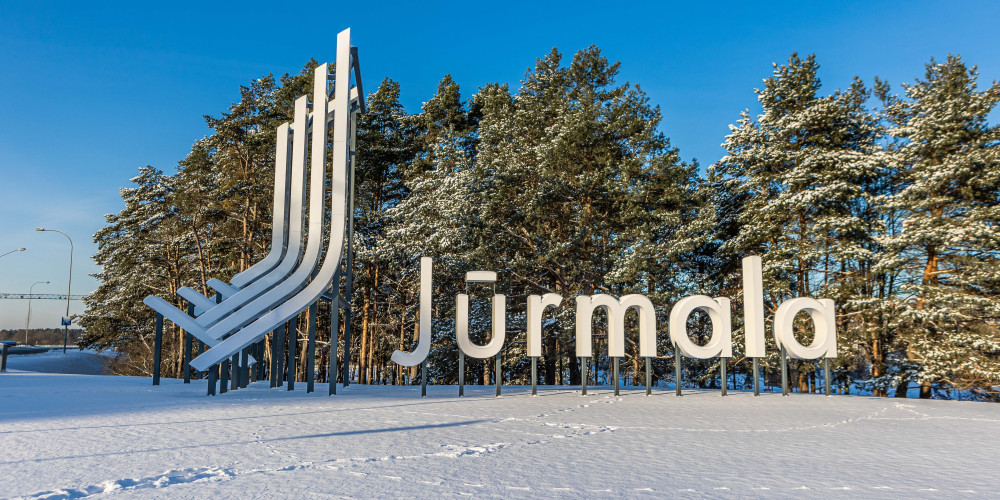
In winter, Jurmala sinks into silence – the hustle and bustle eases off, the beaches become an endless terrain without a single living thing visible, the streets begin to seem longer – often you will not notice anyone towards you until you reach their furthest point. However, this peaceful silence is not a sign of emptiness – rather, it is an opportunity to see a different essence of Jurmala. At this time of year, Jurmala is a special destination for those who live harmoniously with their Nordic origins and who still find joy and pleasure in this calm and reflective season.
In addition to the fact that Jurmala provides the enjoyable, deeply silent seaside area characteristic to the region, it also offers a relaxing spa experience of the resort town, in which an honorable mention is given to sauna traditions and warm water procedures, as well as an excellent gastronomic experience – allowing you to enjoy the cozy winter in the city’s restaurants. Once again, the winter city reveals another one of its charms – bare branches of trees allow you to see the exquisite facades of historical architecture, which remind you of Jurmala’s unique cultural environment. Yet the city does not cease to become a destination of art and music – on the contrary, the winter becomes an active cultural season for Jurmala.
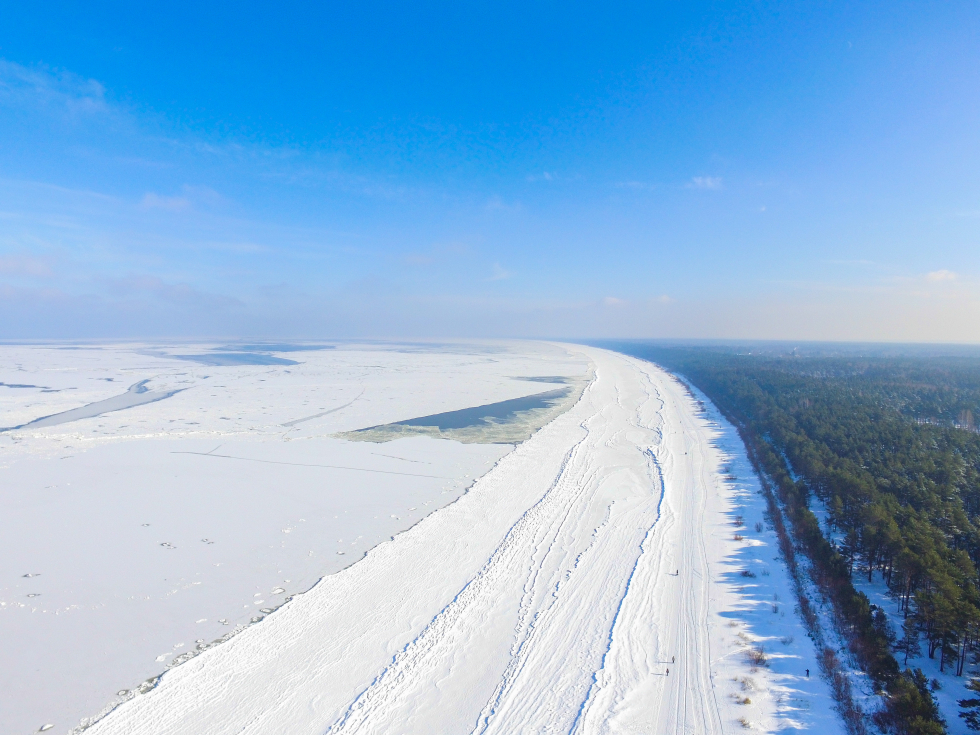
Enjoying the winter nature in a seaside city – evergreen forests, expanses of snow and ice
Did you know that it is in Jurmala that Latvia has the warmest winters with the most unstable and short-term blanket of snow and the longest frost-free periods? These mild winter conditions allow you to reflect on yourself and enjoy the magic of nature and Jurmala’s winter landscapes. The frozen Lielupe River, the snowy expanses of the beach and the evergreen pine groves, offer excellent opportunities for walks, allowing you to experience the peaceful, enchanting winter.
Winter is the time when the paths disappear under the endless stacks of snow, inviting you to be the first to mark your own trails and to make your first steps in the white, untouched snow across the vast beach. At this time, the smell of the sea and pine trees has faded away gradually and has frozen on the island - now it smells of snow and freshness here…
Not only fresh snow drifts attract winter enthusiasts - Jurmala with its beach horizons, dunes and forests are appreciated by those who take the opportunity to mark their cross-country ski tracks in the untouched winter snow. During the snowy winter, ski tracks are installed both on the Jurmala city beach and in the Dzintari forest park, which is illuminated in winter, inviting you to enjoy an active form of vacation. By the way, the forest in Melluži is especially attractive for skiing at this time - in the area between Dārzu Street and Valtera Prospects, which stretches to Slokas Street along the Lielupe River, offering skiing in the silence of winter.
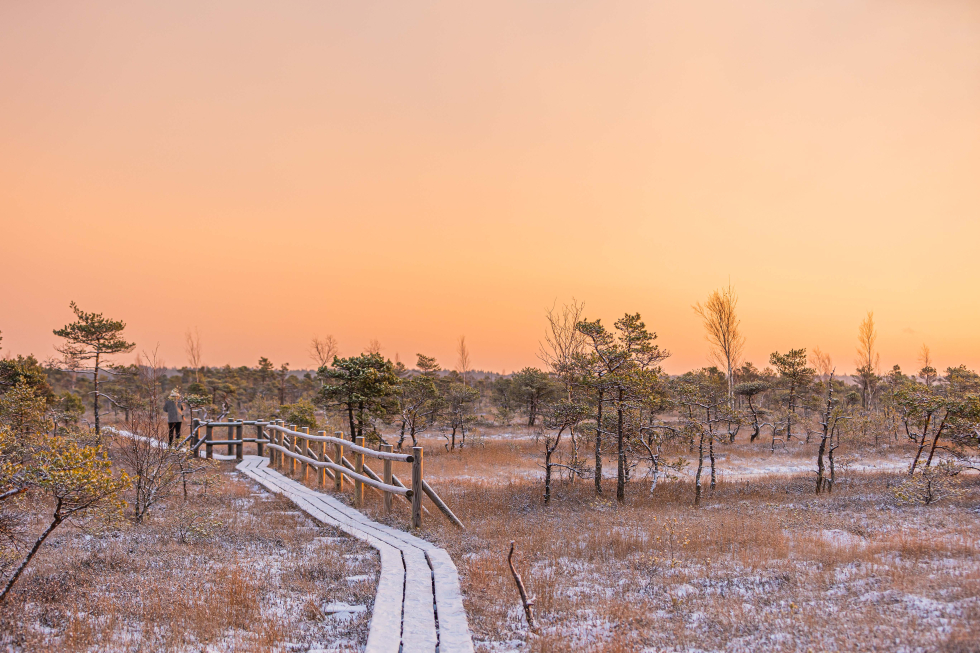 Spruce and pine – are evergreen symbols of winter – and the greatest treasures of Jurmala’s nature. These majestic conifers can be great trip companions both the dunes, which stretch along the coast for 24 kilometers, and in individual parks and forest areas. Here, in the city, a well-maintained seaside pine forest area is Dzintari Forest Park, however another authentic and wild experience is offered by Ragakāpas Nature Park in Buļļuciems, where the oldest and most natural forest massif stretches. The pine trees here are more than 200 years old, some reaching over 300 years of age. During your walks, you will notice how the trunks of these ancient trees have bent, listening to the strong winds hundreds of years old, while perfectly straight stands of young pine trees emerge next to them.
Spruce and pine – are evergreen symbols of winter – and the greatest treasures of Jurmala’s nature. These majestic conifers can be great trip companions both the dunes, which stretch along the coast for 24 kilometers, and in individual parks and forest areas. Here, in the city, a well-maintained seaside pine forest area is Dzintari Forest Park, however another authentic and wild experience is offered by Ragakāpas Nature Park in Buļļuciems, where the oldest and most natural forest massif stretches. The pine trees here are more than 200 years old, some reaching over 300 years of age. During your walks, you will notice how the trunks of these ancient trees have bent, listening to the strong winds hundreds of years old, while perfectly straight stands of young pine trees emerge next to them.
An interesting, unique destination for studying pine trees is the Darmstadt Pine Grove (Darmštates priežu audze), which was created at the end of the 19th century, when the forest chief of the Riga region, Eižens Ostvalds, hoping for a huge profit, imported pine seeds from Germany. Unfortunately, the anticipated “miracle trees” never grew – the seeds turned out to be unsuitable for the Latvian climate, and the grove became an exhibition of crooked and crooked trees. This 4.9-hectare grove, which has survived to this day, today is a nature reserve and a tangible proof that nature does not yield to human manipulation.
A special winter natural phenomenon, portrays impressive ice piles that can be observed in Jurmala, which form in the spring after harsher winters. Strong winds push cracked ice sheets one above the other, forming ice mountains, the height of which can reach up to 10 meters. However, taking into account the changing climate, such phenomena are more difficult to predict today.
For more nature walking routes, see the sections “Nature Parks and Objects” and “Nature Trails”.
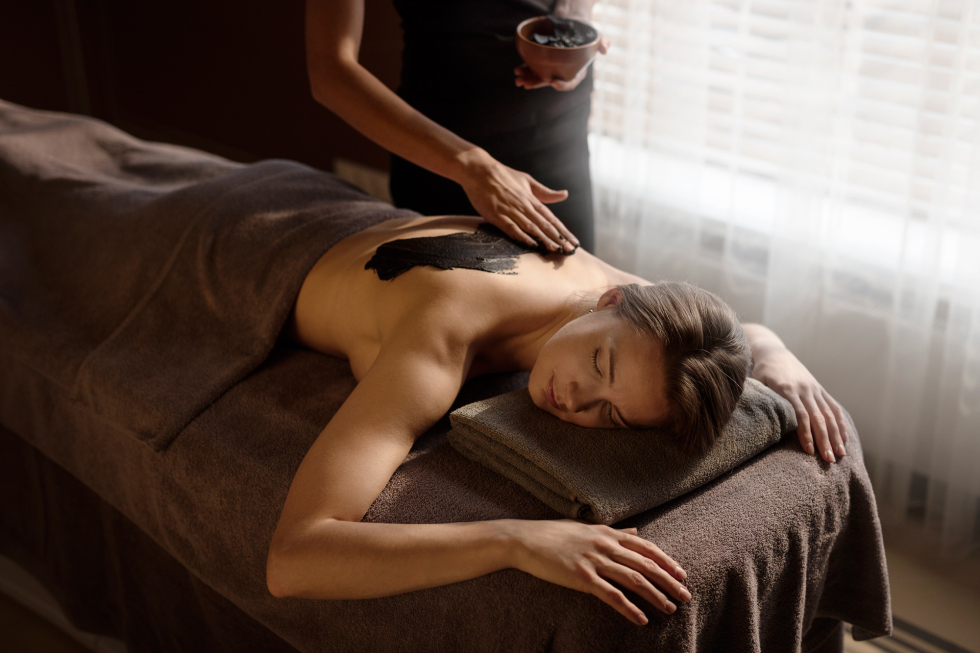
Winter wellness rituals: sauna and warm water procedures
The winter months have always encouraged us to look for ways to warm up our bodies. Northerners have cultivated the traditions of sauna and warm water, and nowadays Jurmala offers ample opportunities to combine this ancient tradition with modern comfort. Relaxation pools, saunas and whirlpools are a great opportunity not only to warm up, but also to improve our well-being and regain energy.
If you are near the sea, then Baltic Beach Hotel & SPA also offers a Sea Wellness pool in winter, which uses deep sea water. Purified and heated to +28–30 °C, it is an excellent relaxing pleasure for the body, which can be supplemented with a visit to the Himalayan salt sauna or cedar sauna. Lielupe by Semarah Hotels is a great place for both individual relaxation and family recreation. The center offers a pool with cascades for adults and a warm pool for children, a Finnish sauna with dry heat, which helps relax muscles and cleanse the skin, as well as a Turkish bath with gentle moist heat, which improves respiratory health and provides skin hydration. Hotel Jurmala SPA offers three pools of different temperatures, whirlpools and several saunas. Visitors can enjoy a Roman bath, a classic 80 °C Finnish sauna and an extra hot 100 °C Finnish sauna with low humidity, designed in a fisherman's style, using natural wood and jadeite stones in the oven. The aromatic sauna with the pleasant aroma of herbs offers gentle relaxation in a heat of 60 °C, while the salt sauna, in which steam combines with the effect of salt, not only cleanses and moisturizes the skin, but also provides a positive effect that persists long after the visit. Kurshi Hotel & SPA offers a peaceful, relaxing set of saunas, close to nature, which has temporarily fallen asleep in winter, where you can enjoy herbal teas and sauna treatments with the gifts of nature. The treatments include a traditional beating with oak and birch viht or an aromatic ritual with eucalyptus brooms and massage elements. In some rituals, natural scrubs and mud from Latvian lakes are used to cleanse and care for the skin. The treatments also include foot baths with herbal decoctions, peeling and aromatic body care techniques, which are complemented by brooms made of natural materials, honey and citrus fruits, ensuring harmonious and thorough care.
For more information about SPA service options, see the section “SPA and Beauty”.
Winter medical treatment offers in Jurmala
One of the unique medical and spa treatment destinations in Jurmala is the “Jaunķemeri” Rehabilitation Center, which keeps alive the historical traditions of resort treatment, including offering authentic mud and hydrogen sulfide baths. In winter, the center offers a special program “ZiemasSPĒKS” or “Winter power” (01/12/2024–31/01/2025), which combines traditional treatment methods and modern therapies to strengthen health and increase energy (the offer requires a mandatory referral from a family doctor or other specialist (!). The “ZiemasSPĒKS” program includes therapeutic and relaxing treatments, including mineral water baths, mud therapy, group physiotherapy and cardio training with dosed load. It is complemented by Nordic walking and walking classes with Smovey rings, salt therapy, hydromassage and lymphatic drainage procedures. Relaxation is provided by music therapy, morning exercises and medical Qigong, in addition, you can enjoy oxygen cocktails and air swimming or aero-therapy.
If you want to try something special, the National Rehabilitation Center “Vaivari” offers a pool that uses mineral water extracted from a depth of 500 meters. The water is heated to +29–31 °C, and its natural properties are perfectly suited for improving well-being.
For more information about treatment options, see the section “Sanatoriums and Rehabilitation”.
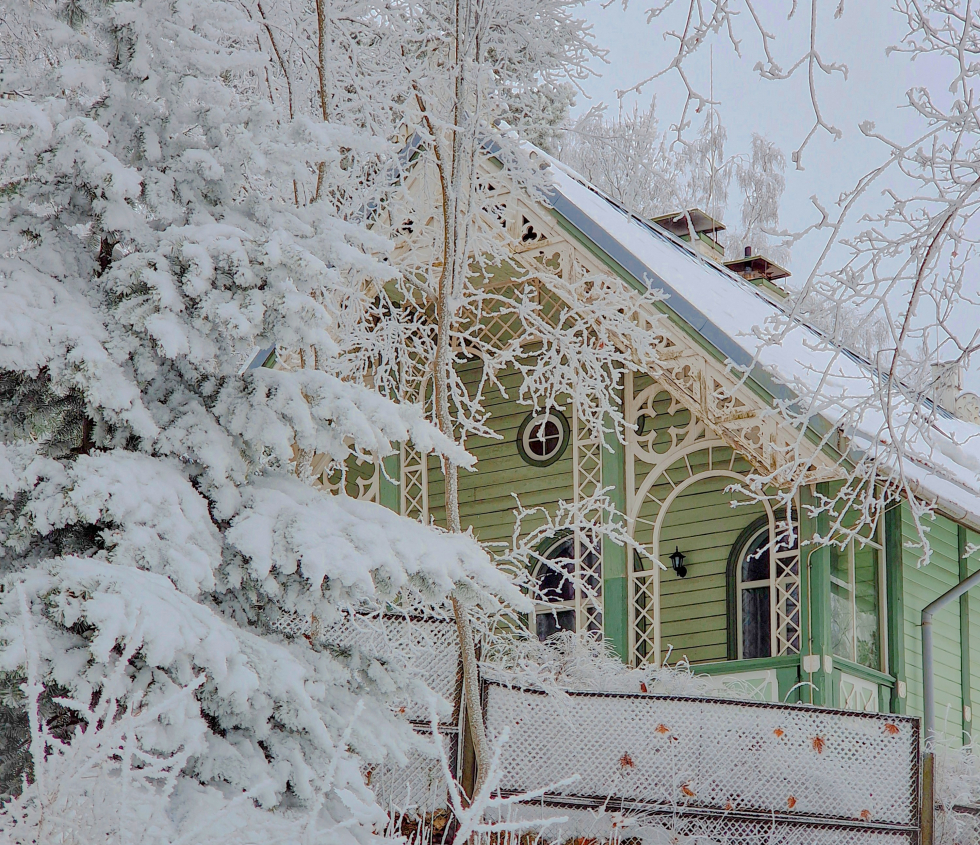
Architectural facades exposed in winter
In winter, when the curtain of tree foliage has completely fallen, the facades of Jurmala's traditional wooden architecture open up to view. Every pattern carved into the window shutters, the ornament of the gable, the floral motif in the spire, the turret and the weather vane clearly demonstrate their delicacy. The blue, red and white squares of the glazed verandas are then almost the only color accents in the uniformly white and gray winter.
This time of year makes Jurmala a special walking destination, where each building not only delights with its architectural richness but also stimulates the imagination - thinking about life behind the warmly lit windows both today and at the time when these houses were built.
For more information about city architecture routes, see the section “City Routes”.
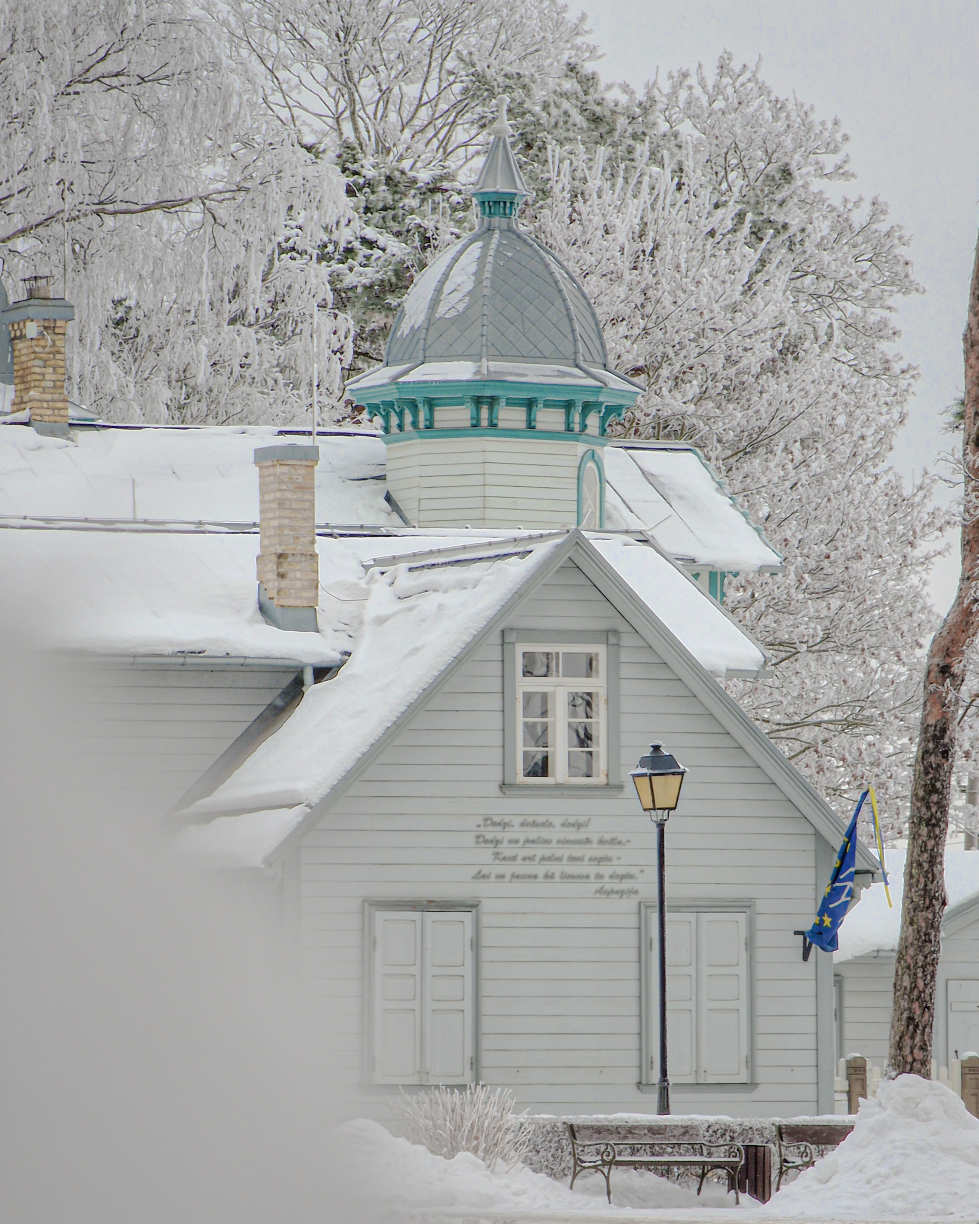
Winter cultural season in exhibition halls and Dzintari concert hall
Winter is the time of the cultural season, when the city's cultural spaces become a warm refuge, offering a place to enrich the mind and spirit, while the outside appears to be silent.
Jūrmala Museum invites visitors to explore a special exhibition “1 + 1 + 1 = 1” – Sloka + Ķemeri + Rīgas Jūrmala District = Jūrmala (until 18/05/2025), dedicated to Jūrmala's 65th anniversary. The exhibition combines residents' memories and artifacts, telling the story of three former independent towns – Sloka, Ķemeri, and Rīgas Jūrmala – that together formed the modern city of Jūrmala. This experience is complemented by an open-air exhibition in Horn's Garden, “Jūrmala – 65”, which presents a photographic retrospective showcasing the city's development.
Art enthusiasts can also appreciate the exhibition “Prime Mover: Primum Mobile” by painter Dags Vidulejs (10/01.–23/02.), inspired by Dante Alighieri's Divine Comedy. The artist explores a journey from despair to the revelation of truth, drawing on the experiences of Love, Faith, and Hope.
Additionally, the exhibition “The Hedonists' Duet” (10/01.–23/02.) presents works by painter Tatjana Krivenkova and porcelain artist Jekaterina Sazonova. The interplay between paintings and porcelain blends color and form in harmony, inviting a sense of inner peace and aesthetic lightness. Sazonova’s sculpturally precise porcelain forms are enhanced by Krivenkova’s delicate painting, together creating a polyphonic artistic experience.
Meanwhile, the Art Station “Dubulti” offers contemporary art exhibitions in a unique modernist railway station building reminiscent of a frozen sea wave, and presents the exhibition “The Beautiful in the Ugly and the Ugly in the Seemingly Beautiful” by Swedish photographer Lars Tunbjörk (until 26/01/2025), where bright colors, drastic humor and everyday depictions border on the strange and surreal.
The Bulduri Exhibition House offers works by both Jūrmala artists and international creators. This season, the hall features the exhibition "SOS. Life Matters" (07/01.–01/03), where artist Jūlija Eresko’s oil and acrylic paintings interact with Jānis Straume-Broliša’s neon light installations. Glass tubes and light effects create a mysterious space between light and darkness, prompting reflections on the value of life and the fragility of humanity in today's world.
The exhibition hall also offers a unique opportunity to explore the studio of Jūrmala's art legend, Valdis Bušs (1924–2014), one of Latvia's most outstanding landscape painters of his time.
Meanwhile, the Aspazija House in Dubulti hosts the exhibition “Women” (until 19/01), dedicated to the 130th anniversary of the first production of Aspazija’s play “Vaidelote”. The exhibition explores the experience and role of women in society using various methods of artistic expression.
Similarly, at Aspazija's house in Dubulti, Kristīne Kligina's solo exhibition “The Edge of Oblivion” (24.01. – 08.03.) is on display, featuring works created in muted earth tones. The exhibition conveys a message about the vanishing values of a departing era – simple and beautiful moments, the cyclical processes of nature, the impact of time, presence, and being here and now.
Meanwhile, Vitalijs Yermolajev’s painting theater “Inner Light” provides an insight into the magical depths of painting.
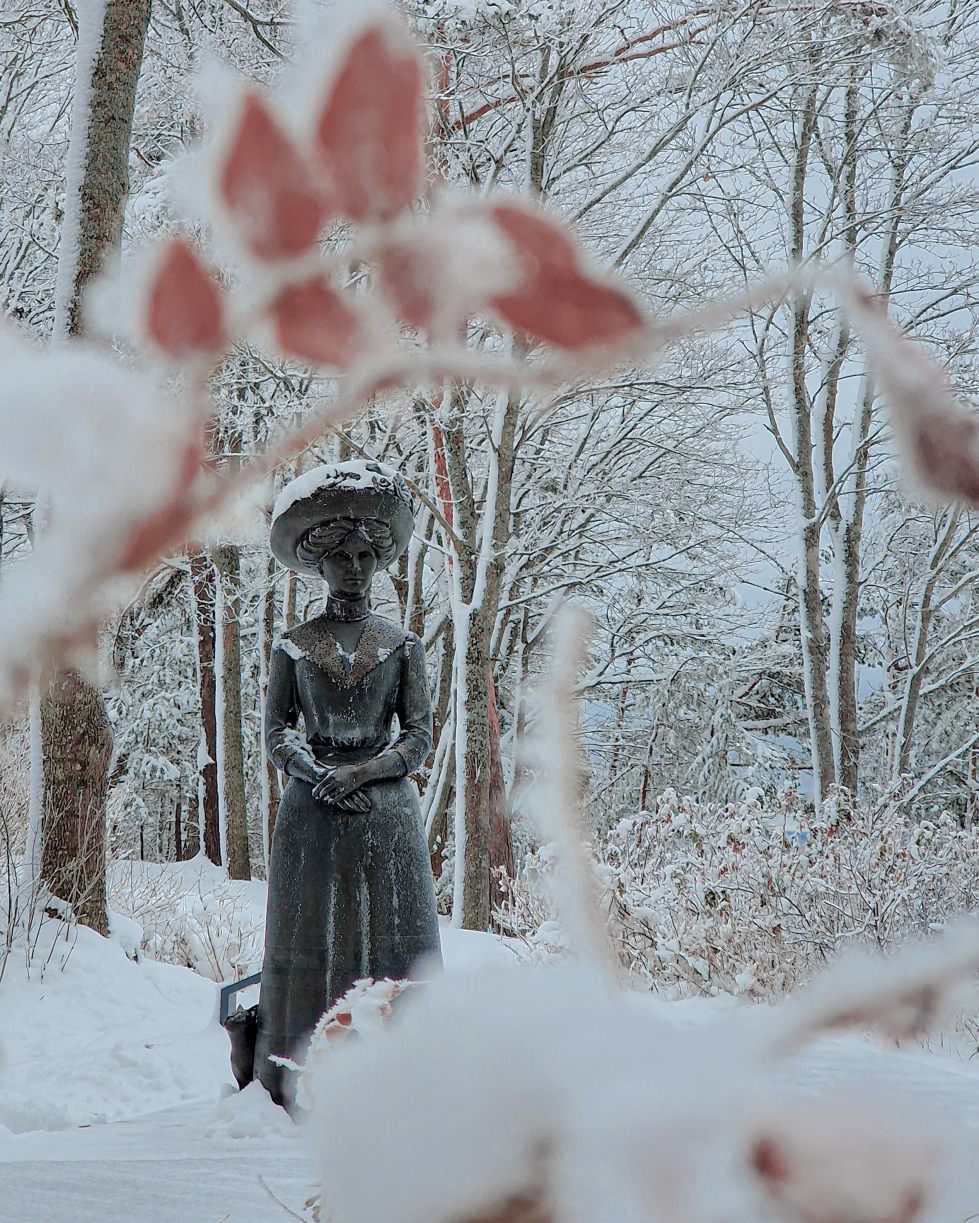
The Dzintari Concert Hall plays a special role in Latvia’s winter cultural enrichment. As per tradition, the new 2025 winter season program will feature the famous Latvian composer and pianist Raimonds Pauls' birthday concert (12/01), in which the Maestro will perform together with Edgars Ošlejs and the Latvian Radio Big Band. Next, Jūrmala JAZZ (24/01) will offer a performance by British singer Ola Onabule, in which the artist will perform together with the Latvian Radio Big Band under the direction of conductor Eds Partikas. In turn, the concert by Georgijs Osokins and Kamila Tomā (14/02) will be suitable for the Valentine's Day mood. The culmination of the winter season will be marked by the performance of American blues and soul singer Big Daddy Wilson and his Italian band Goosebumps Bros (22/02). This concert program will take listeners on a musical journey through African-American music traditions, from blues and soul to folk music. During the winter seasonal program, the Dzintari Concert Hall will also offer special events for children and youngsters, such as musical fairy tales and educational concerts that promote cultural understanding and musical enjoyment for the youngest audience.
For more information about cultural opportunities, see the sections “Art and Culture” and “Events”.
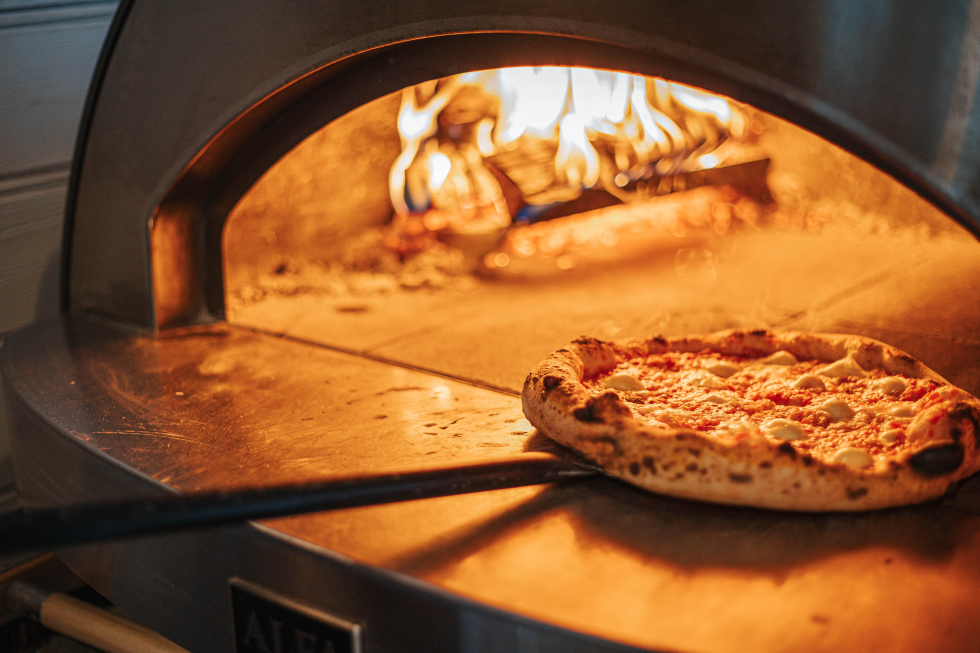
Heartwarming and aromatic meals in Jurmala restaurants
While the everyday life of the resort town bustling with different cultures and international guests is more subdued in winter, the culinary offer of Jurmala retains its diversity of the world’s flavors. Jurmala restaurants continue to offer authentic dishes of Caucasian, Central Asian, Eastern European and Mediterranean cuisine in both traditional and modern interpretations.
A peculiar feature of these cuisines is the ability to adapt to the climate and season. Central Asian cuisine in winter is distinguished by rich soups and stews, complemented by warming spices. Caucasian dishes often contain nuts, greens and hearty ingredients that help strengthen the immune system, while Mediterranean cuisine - famous for its healthy, nutritious features, offers citrus fruits and olive oil in winter, which help the body conserve energy and improve well-being.
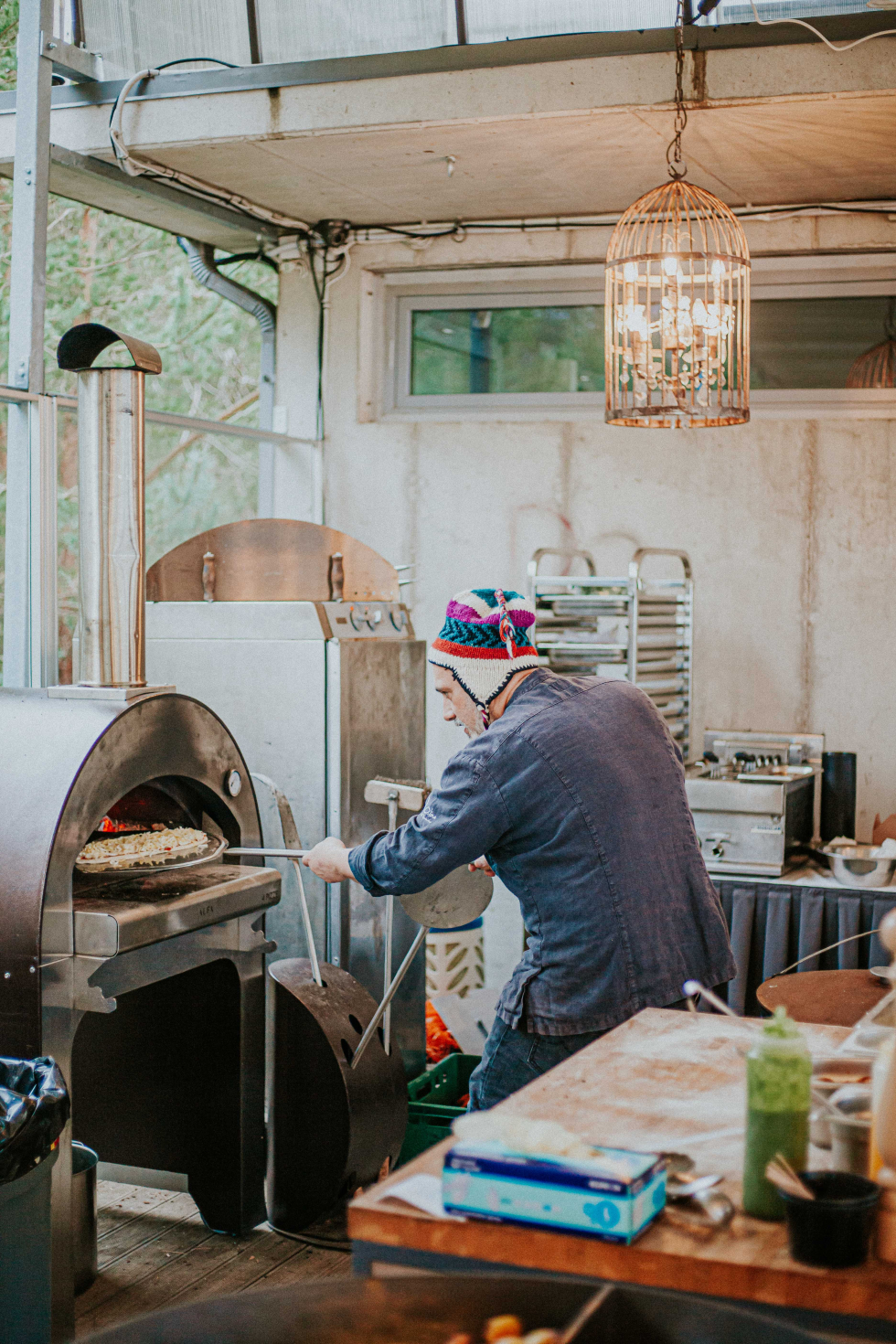
During the winter season, a local tradition is held by some of the city's restaurants - they offer to buy a glass of warming mulled wine to take away. During your walk along the beach, it is definitely worth stopping at the glass house with a terrace Simply Beach House (Pilsoņu iela 1). It is one of the few gourmet stops that operates on the beach all year long, offering both warming drinks, food and cozy safe space with a view on the frozen beach.
During the winter, a cafe or restaurant becomes especially joyful – it warms and soothes the body and soul after a walk by the windy seaside.
For more information about Jurmala's gastronomy options, see the section “Eat and Drink”.
